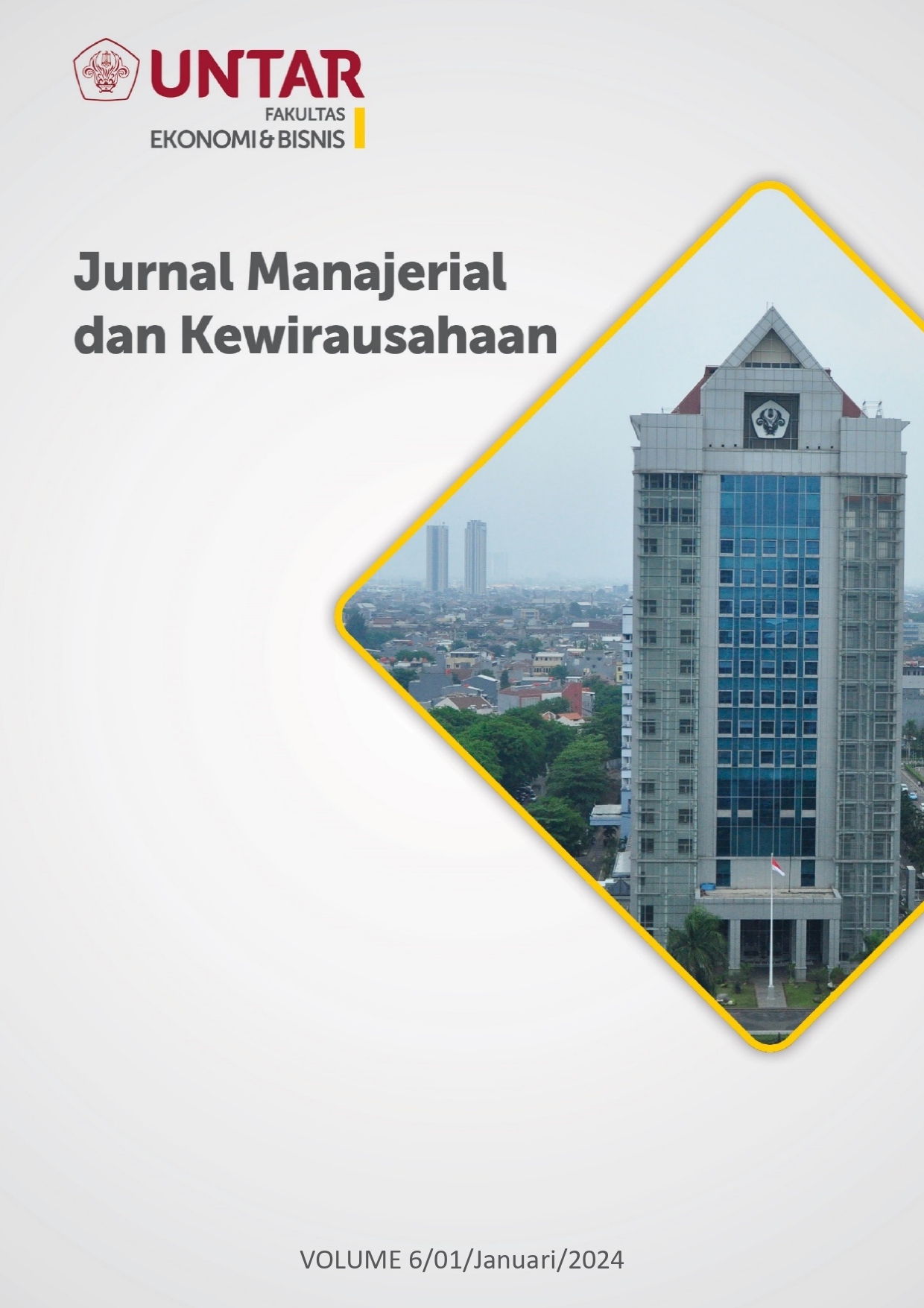Pengaruh Praktik Pengembangan Karyawan terhadap Modal Manusia & Inovasi
Main Article Content
Abstract
This study adopts the theory of innovation, which shows that innovation is a multifaceted socio-cultural development that affects various stakeholders and various sources of knowledge (Alaei, 2020; Chen, et al., 2018; Edwards Schachter, 2018; Liu & Wang, 2022) . This study aims to develop a theoretical model regarding the process of how Employee Developmental Practices can improve Social Capital, and regarding the process of how Employee Developmental Practices can increase Human Capital. The author developed the model by including the following variables: Employee Developmental Practices which explain how these employee development practices will increase Social Capital & Human Capital which will improve Social Capital & Human Capital. The logic is that employee development practice orientation can generate innovation. The resultsshowed that Employee Developmental Practices had a positive and significant effect on Human Capital, Employee Developmental Practices had apositive and significant effect on Innovation.
Article Details
Section

This work is licensed under a Creative Commons Attribution-NonCommercial-ShareAlike 4.0 International License.
This work is licensed under a Jurnal Muara Ilmu Ekonomi dan Bisnis Creative Commons Attribution-ShareAlike 4.0 International License.,/p>
References
Abualoush, S., Masa’deh, R.E., Bataineh, K., Alrowwad, A. (2018). The role of knowledge management process and intellectual capital as intermediary variables between knowledge management infrastructure and organization performance. Interdiscip. J. Inf. Knowl. Manag, 13, 279–309
Adnan Ahmad Al-Tit, Sura Al-Ayed, et al. (2022) The Impact of Employee Development Practices on Human Capital and Social Capital: The Mediating Contribution of Knowledge Management. J. Open Innov. Technol. Mark. Complex, 8, 218.
Bontis, N. (2002). Fitz-Enz, J. Intellectual capital ROI: A causal map of human capital antecedents and consequents. J. Intellect. Cap, 3, 223–247.
Boris Urban & Lekhooa Matela. (2022). The nexus between innovativeness and knowledge management: A focus on firm performance in the hospitality sector, 6, 26 – 34.
Brooks, K. & Nafukho, F. M. (2006). Human resource development, social capital, emotional intelligence. J. Eur. Ind. Train, 30, 117–128.
Cabello-Medina, C., López-Cabrales, Á., & Valle-Cabrera, R. (2011). Leveraging the innovative performance of human capital through HRM and social capital in Spanish firms. Int. J. Hum. Resour. Manag, 22, 807–828.
Chen, C. J. & Huang, J. W. (2009). Strategic human resource practices and innovation performancedthe mediating role of knowledge management capacity. Journal of Business Research, 62(1), 104e114.
Chrisshyaren, & Erdiansyah, R. (2023). Analisis Pengaruh Gaya Kepemimpinan Transaksional dan Keterlibatan Karyawan terhadap Kinerja Karyawan dengan Kepuasan Kerja sebagai Variabel Intervening. Jurnal Manajemen Bisnis dan Kewirausahaan, 7(1), 164–175. https://doi.org/10.24912/jmbk.v7i1.22480
Ellinger, A.E., Ketchen, D.J., Hult, G. T. M., Elmadag, A. B., & Richey, R. G. (2008). Market orientation, employee development practices, and performance in logistics service provider firms. Ind. Mark. Manag, 37, 353–366.
Erol, S., Jäger, A., Hold, P., Ott, K., Sihn, W. (2016). Tangible Industry 4.0: A Scenario-Based Approach to Learning for the Future of Production. Procedia CIRP, 54, 13–18.
Frank N. K. O., Manpreet K., & Evelyn A. O. (2022). Does human capital mediate the nexus of human resource management (HRM) practices and organizational performance?. International Journal of Research and Business and Social Science, 11, 199-209.
Fred Gault. (2018). Defining and measuring innovation in all sectors of the economy. Research Policy, 47, 617-622.
Halbast Hussein H & Tarik Atan. (2019). The Impact of strategic Human Resource Management Practices on Competitive Advantage Sustainability: The mediation of Human Capital Development and Employee Commitmen. MDPI, 11, 5728.
Hisham, Idress, Jin Xu, Syed Arslan H, Shehnaz T. A. (2023). Systematic review of knowledge management and new product development projects: Trends, issues, and challenges. Journal of Innnovation & Knowledge Vol 8, Issue 2.
Sanjaya, R. O. & Yanuar, Y. (2023). Pengaruh Employee Engagement terhadap Financial Performance dengan Tingkat Customer Satisfaction sebagai Faktor Mediasi pada Hotel Mewah ABC di Bilangan Jakarta Selatan. Jurnal Manajemen Bisnis dan Kewirausahaan, 7(4), 893–907. https://doi.org/10.24912/jmbk.v7i4.25392
Wang, G. G., Werner, J. M., Sun, J. Y., Gilley, A., & Gilley, J. W. (2017). Gilley Means vs Ends: Theorizing a definition of human resource development. Personnel Review, 46(6), 1165-1181. https://doi.org/10.1108/PR-11-2015-0306

